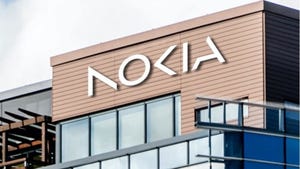Although it does appear to be incredibly popular to fight for the ‘first’ title in various markets across the world, one telco which is not buying into the necessity for speed is Orange Spain.
September 25, 2019

Although it does appear to be incredibly popular to fight for the ‘first’ title in various markets across the world, one telco which is not buying into the necessity for speed is Orange Spain.
At the 5G Core conference in Madrid, Tomas Alonso, Head of Product Engineering at Orange Spain, said the telco was taking its time despite pressure being ramped up by other telcos. The team are currently trialling 5G at various locations throughout the country, though there are no plans to speed up the commercial launch, which is currently set for some point in 2020.
“I would summarise our work in two words; testing and learning,” said Alonso.
“We do not launch the technology because of the technology. We launch the technology to offer a better customer experience.”
This is the challenge which is being presented for the industry right now, according to Alonso. Many telcos are launching 5G services because they can launch 5G services, not necessarily because it is the best thing for the business or the consumer.
Although we have been talking about 5G for years, realistically the ecosystem is still immature. Stand-alone standards are still embryonic, spectrum has not been aligned perfectly, telcos are still fibering networks, the 5G core is non-existent and the radio technology is not good enough.
The elements are present, but that is not to say the ecosystem or underlying network is ready for 5G. It is a slightly pessimistic view on the state-of-play, but it is difficult to argue with the rhetoric which Alonso has presented. The radio equipment is an excellent example Alonso used to illustrate his point.
Irrelevant as to which vendor a telco has selected, the equipment which is being deployed on base stations is still first-generation. Right now, the equipment is too big, its too heavy and it consumes too much energy. These are all challenges which were perfectly predictable, however Alonso believes the products which will be brought to market next year will be much more appetising. There will be a stronger business case for 5G deployment when the equipment has been fine-tuned.
Although this does sound like a logical argument, it is clearly not shared by everyone; telcos are aggressive launching 5G networks. In the US, all four telcos now offer 5G connectivity, while the three telcos in South Korea have all launched as well. Only O2 is missing from the UK’s 5G party, Deutsche Telekom is up-and-running in Germany, Telecom Italia and Vodafone in Italy, and both Sunrise and Swisscom in Switzerland.
The view of waiting until the opportune moment is clearly one being cultivated by the minority, as we suspect the hundreds of other telcos which haven’t launched simply aren’t ready. Orange Spain might be one of the very few playing the long-game.
What is worth noting is that there is no perfect way to enter the 5G world. Those who have already started offering services will grab the early adopters, but they might irritate a few customers with expensive tariffs and limited coverage. Those who wait might have a more established network though they will be playing catch-up. The launch will always be a compromise.
Looking at the work which Orange Spain is doing right now, the team has 50 live trials across the country.
Another point which the Orange Spain team will have to get their head around is the idea of network sharing. This will not necessarily prevent the team from launching 5G services, though it will impact the rollout strategy. Reports have emerged suggesting the team is in conversation with Telefonica and MásMóvil over non-critical 5G sites.
The idea of network sharing is becoming increasingly popular with telcos around the world, and it is easy to see why. During her own presentation, Lucy Lombardi of Telecom Italia quoting research from McKinsey, suggesting network sharing agreements could save as much as 40% of deployments costs for a telco. 5G is going to be a very expensive business, and any opportunity to reduce the financial burden will be strongly considered.
Some might disagree with the position of Orange Spain, but first doesn’t necessarily mean best. Orange has shown itself to be one of the more considered, long-termist and successful telcos in Europe in recent years, so it would be a fair bet to have confidence in the team.
About the Author(s)
You May Also Like








.png?width=300&auto=webp&quality=80&disable=upscale)


_1.jpg?width=300&auto=webp&quality=80&disable=upscale)


.png?width=800&auto=webp&quality=80&disable=upscale)